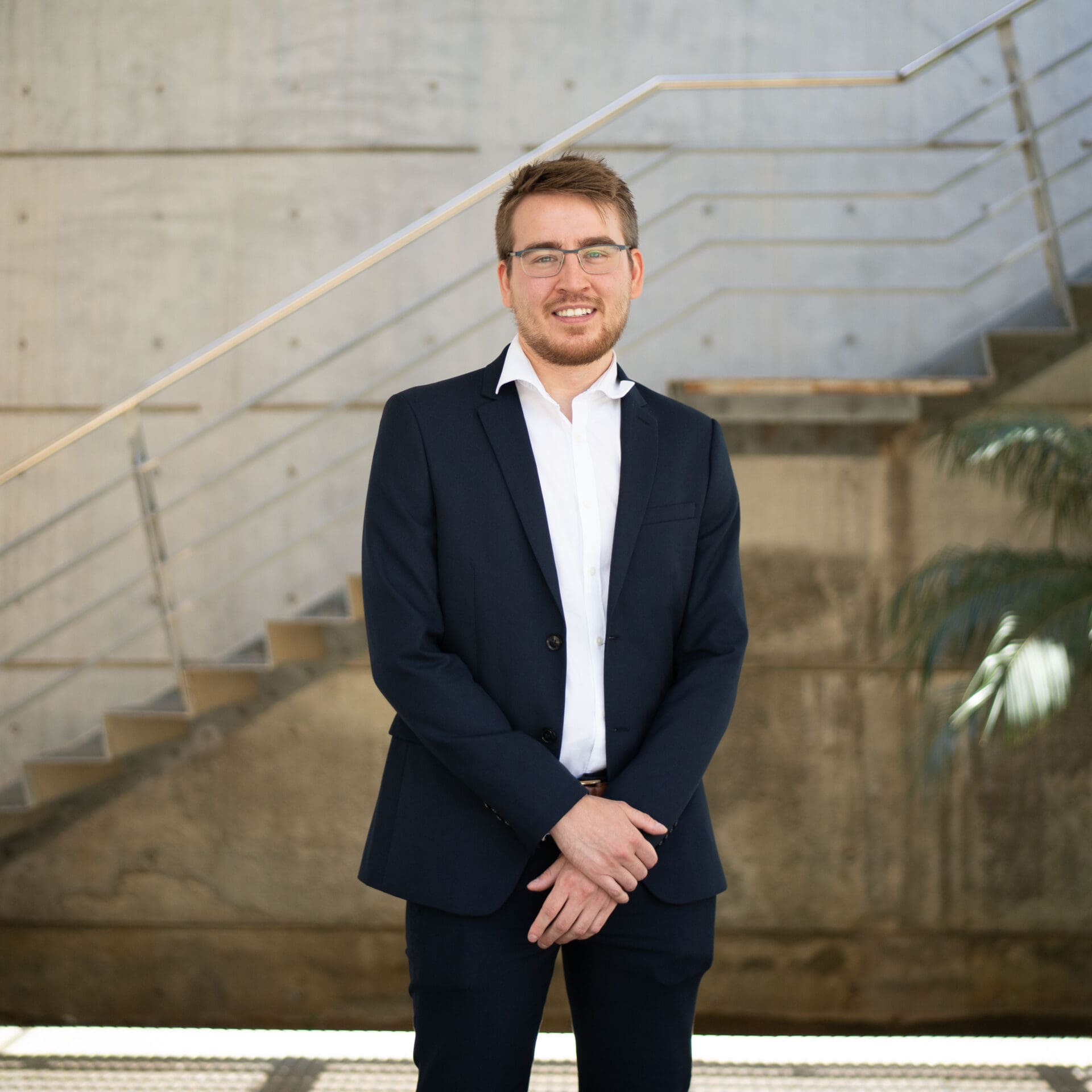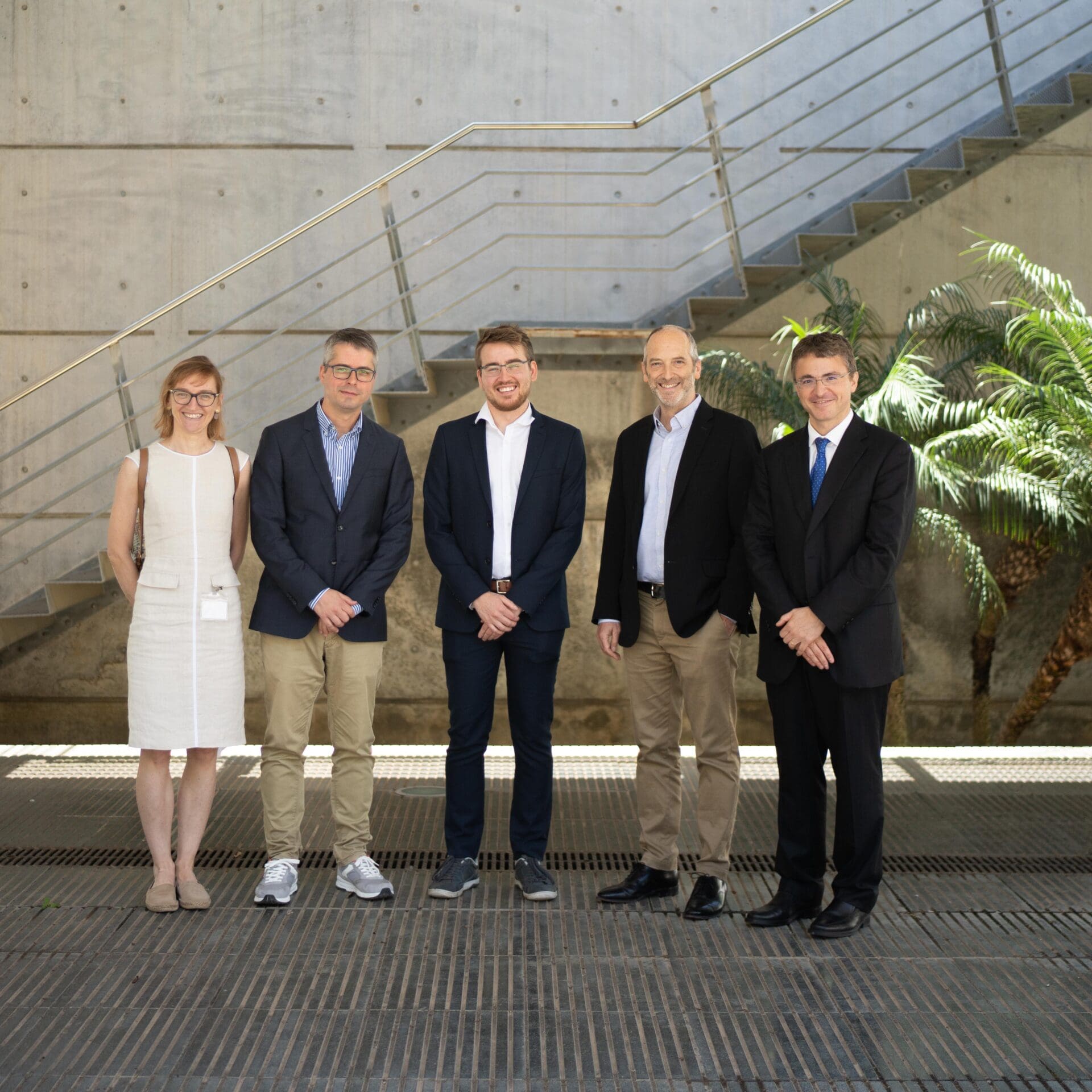Kudos to Dr. Day!
Craig Day, PhD student under the supervision of Prof. Ruben Martin (ICIQ), has defended his PhD thesis entitled “Understanding Nickel Catalysis at the Molecular Level: Insights into C-O Functionalization and Electron Transfer Events” (assigned to the Analytical and Organic Chemistry Department of the Universitat Rovira i Virgili) publicly on July 1st.
The members of the evaluation committee were: John Hartwig (UC Berkeley), Cristina Nevado (University of Zurich), and Marcos Suero (ICIQ)
Dr. Day is from Toronto, Canada. He did his bachelor’s in Pharmaceutical Sciences at York University and his Master’s in Chemistry at the University of Ottawa. In 2019 he joined ICIQ’s Martin group. Outside the lab he likes travelling, running, and when indulging his teenage self, playing video games (mostly Dota).
What is your thesis about?
From a conceptual point of view, I have been working on new ways to understand catalytic interactions. I have identified interactions between nickel and zinc in Negishi cross-coupling reactions that hadn’t been well described before. Other work has helped understand redox reactions that occur within nickel catalysis that have also been overlooked. My work will help the community understand how these reactions happen, how this affects the catalysis and how to promote a specific result depending on the goals you want to achieve.
Why did you focus on this for your thesis?
It all comes back to understanding things that are not well understood, that are oversimplified in the literature. If you can understand something that other people have overlooked it gives you a much more complete picture of what is going on.
What applications might your thesis have in the future?
Thanks to understanding these Ni-Zn catalytic interaction and redox interactions more generally, we can now tackle catalysis in a much more rational manner. It’s very difficult to optimize a reaction by screening, with a more rational understanding these types of reactions should be easier to implement in the future.
From the lessons learnt during your PhD, which one do you value the most?
One of the most important ones is to connect with people. I think there’re a lot of people who are excellent in many different fields and ICIQ is a great place to get those insights, for you to have a wide range of chemical perspectives.
What ICIQ moment you’ll never forget?
During my undergraduate and master’s, I had an interest in metal-metal bonds, but none of my research ever connected to this topic. But in the first month of my PhD, I was synthetising some complexes and I got a crystal structure back… and it had a metal-metal bond! I didn’t expect this to come up in my research and I was really excited to get this type of complex, I was so happy!
What has been your biggest motivation during this time?
It’s quite difficult to come up with something unique or impactful. I think it is important for research to have an impact, and that’s what has motivated me in my work, to aim at this idea of doing something with impact.
What’s next?
First, I’ll do a postdoc at Aarhus University in Denmark with Troels Skrydstrup, and then I’ll do another postdoc at MIT with Jeremiah Johnson working on polymer chemistry.
Chemistry is fun because… it’s always different, there’s a lot of problem-solving and thinking involved.
Favourite molecule?
The Grubbs catalyst. Their development came from very basic organometallic chemistry and it’s one of the few catalysts that came from rational design and understanding – which I think is really cool.
If you were a piece of lab equipment, what would you be?
I used the globe box a lot, so I’m its biggest fan. It makes doing air-sensitive chemistry much more convenient.
Something about you people don’t know?
I have a black belt in taekwondo.
Related news

Let's create a brighter future
Join our team to work with renowned researchers, tackle groundbreaking
projects and contribute to meaningful scientific advancements








 20-12-2024
20-12-2024 


















